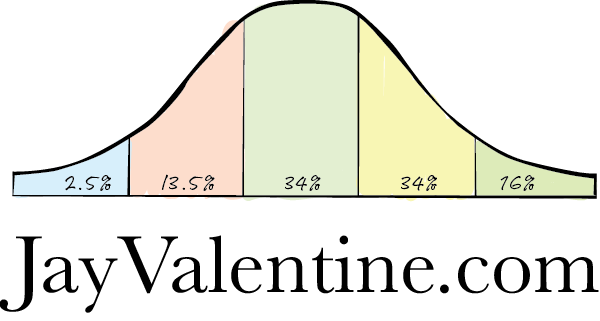
Your startup won its first few deals and you are off and running. Growth is happening and you need to staff up.
You do a private equity round. In that round, the first thing you do is make sales projections. Bring in the MBAs who can multiply anything while not knowing much about what they are multiplying.
Really great features found in Excel that enable you to take the existing revenue, divided by the number of reps and come up with revenue per rep. Then, you add reps and for every rep you add that amount of projected revenue. What could be clearer?
And to run this well-oiled machine, you need a VP of Sales. You go to the headhunters and get resumes of former VPs who took a $50 million company to $150 million and got it sold. Wow, that’s the ticket!
You hire that VP, introduce them to the board, your team, tell them how confident you are in them and off they go.
You do the press release noting you have hired a VP of Sales who is an industry luminary, who will take the company to the next level.
Except they don’t.
You are about to learn that taking a $50 million company to $100 million or $200 million is more about compound interest, maintenance fees, professional services add-ons than it is about some hotshot VP coming up with a great sales formula. There are thousands of stories of the SAP, Oracle, VMware, EMC, IBM exec who came on board the startup and just fell flat—often took it more backwards than forwards.
Why?
A B2B tech startup, one that has $20 million or much less revenue, is a very different animal and you need someone who is clever, intelligent not someone who once rode a rocket.
Remember, anyone can ride a rocket—it takes someone very special to build one.
The VP hires his or her “great reps.” They go to market and the first quarter is disappointing, but who cares? They are just getting started. Then the 4th quarter—oops, the revenue is 10% or less of what the MBA projected.
The following year the bloodshed continues and rep turnover comes in—so you do another equity round (dilution). More disappointment. What does the startup CEO do? Fire the VP of Sales—after all it must be his/her problem.
There are hundreds, maybe thousands of tech firms who are on their 3rd, 5th, 7th, Nth VP and they have yet to break out. They keep firing the VP of Sales.
Have a product that should install in 3 days but takes 5 months—fire the VP of Sales.
Have a marketing department that spends resources on its 3rd web site iteration rather than hard hitting, compelling, confrontational, attention-getting marketing? Fire the Sales VP.
Have a company where the product is just a “nice to have” and not really needed—but you have built impossible sales projections to support a crazy valuation? Fire the VP of Sales.
What if your company has a product that requires a competitor’s product to fill out the customer solution? Hard sales job there—fire the VP of Sales.
Watch for companies where they repeatedly fire the VP of Sales. You will often find the “inherent contradiction” there for why they will not ever be successful.
The problem lies elsewhere—it is all around you, but you are too close to see it.
And after the CEO fires the 3rd VP of Sales, the board fires the CEO, starts over, brings in more equity, dilutes further, and the process begins again.
It is almost never the fault of the VP of Sales.
Typically in today’s software firms, they are just the guys running salesforce.com forecasting meetings and trying to force every Q2 deal into the last day of Q1. If the product is hot, anyone can be the VP of Sales. If it has major issues, almost no VP of Sales can succeed.
Do not fire the VP of Sales—-look inward.
There is a better way.
